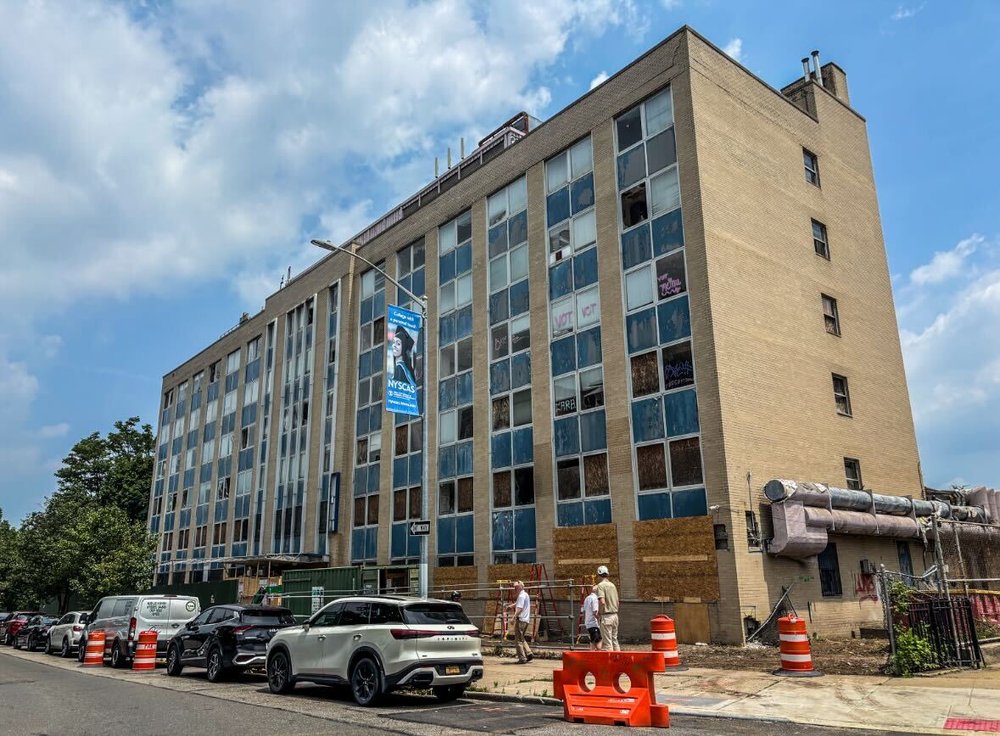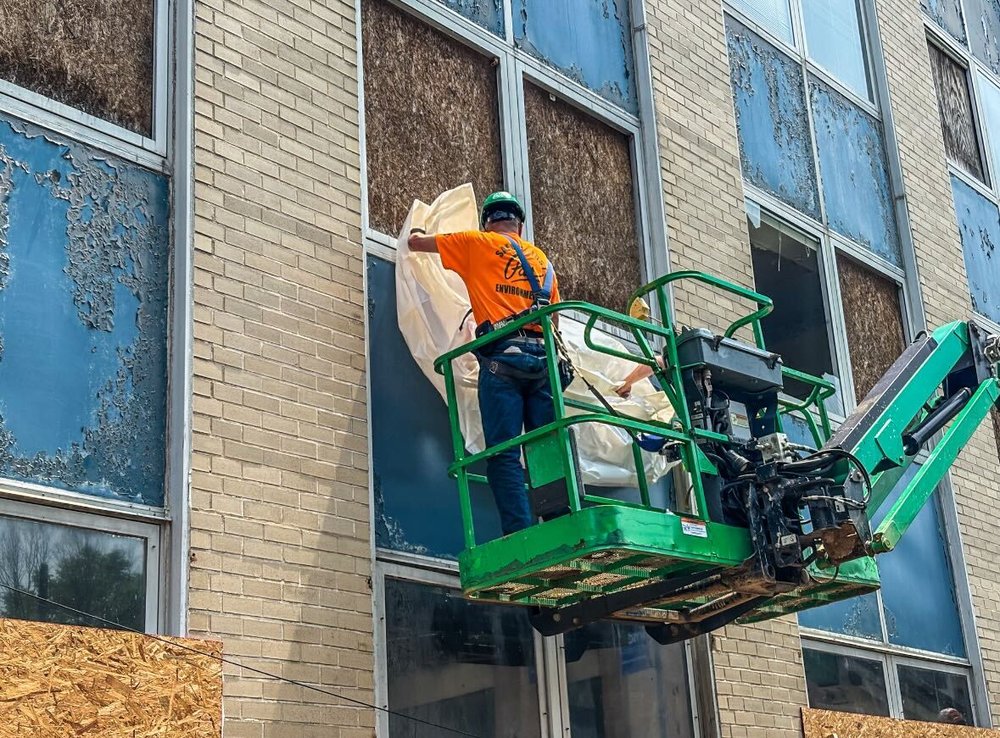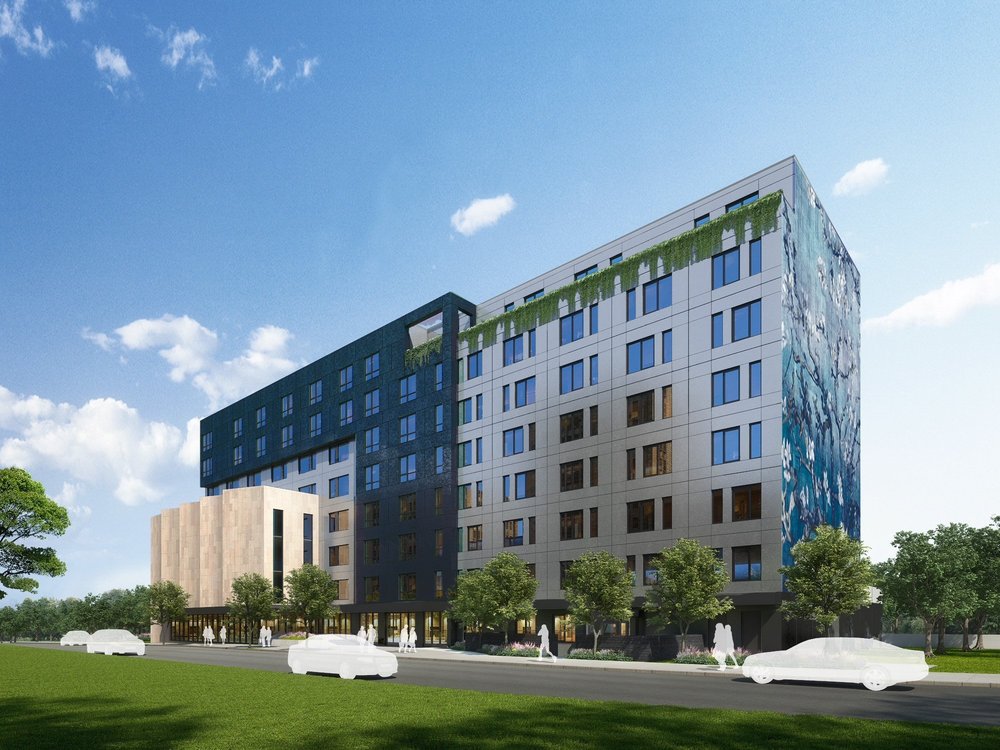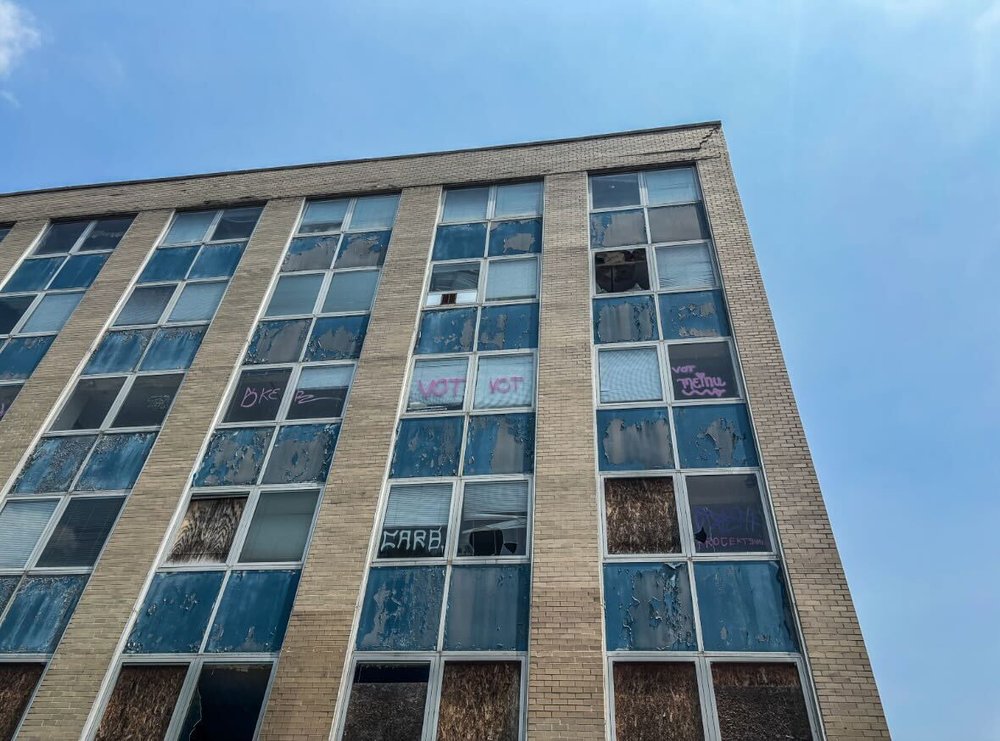From abandoned Queens hospital to affordable housing, despite federal funding cuts
July 23, 2025, 6:31 a.m.
The old Parkway Hospital in Forest Hills has sat empty since 2008, but will soon become 144 units of affordable senior housing.

Zoning rules. The COVID-19 pandemic. Inflation.
In the nearly two decades since Parkway Hospital in Forest Hills was closed and abandoned, multiple plans to convert it into new affordable housing have run into their share of obstacles.
But the latest hurdle was particularly surprising — and nearly derailed the project just as a developer approached a key closing deadline. In February, the Trump administration clawed back an $8 million loan awarded by the Environmental Protection Agency for the proposed apartment building.
The money, part of a pool of cash known as the Greenhouse Gas Reduction Fund that was approved by Congress, was supposed to fund sustainability measures that reduce the building’s carbon emissions, like geothermal energy for heating and more efficient design.
“The removal of that funding at that late stage sent everybody into a tailspin,” project developer Jeff Fox said. “ The initial feeling was, ‘What are we going to do? How can we possibly fill this gap?’”
The Parkway Hospital housing plan was one of many projects nationwide affected by the EPA’s decision to rescind $20 billion it had already awarded and deposited into bank accounts.
Fox said his company, Foxy Development, is moving forward with the project after scrapping some of the most ambitious environmental goals and obtaining new state funding to replace some of the lost EPA money.
But he and housing experts said the saga shows the impact the abrupt removal of federal funding under the Trump administration can have on a planned development amid a dire affordable housing shortage.
“ I think there are other projects as we speak right now, both in New York City and across the country that are reeling from the same cut and the fear of future cuts,” Fox said. “It's sort of opened up this option that I don't think anybody ever realized was an option: that the federal government can cut funds that were not just talked about, but actually obligated.”

The EPA has since canceled the Biden-era Greenhouse Gas Reduction Fund, citing program waste.
EPA Administrator Lee Zeldin, a former member of Congress from Long Island, has pointed to a hidden-camera video of an agency employee likening the effort under Biden to issue the congressionally approved funding as quickly as possible to “throwing gold bars” off the Titanic.
EPA spokesperson Carolyn Holran said the agency “will work to ensure congressional intent is fully implemented.”
The Trump administration has also withheld money to make existing apartment buildings more efficient through a fund known as the Green and Resilient Retrofit Program, including 18 projects across New York and New Jersey, according to a list shared with Gothamist.
And the White House is considering additional cuts to the federal housing budget by time-limiting rental assistance and slashing overall spending by over 40%.
A new analysis by the New York Housing Conference found that the cuts would not just hurt tenants who receive housing vouchers and other direct assistance, but also lead to “devastating financial consequences” for lenders and stymie new housing development.
But just across the Grand Central Parkway from Flushing Meadows-Corona Park, the plan to convert the old Parkway Hospital into housing is nevertheless underway.
The hulking six-story structure located beside a school and across from an apartment complex has stood empty since shutting down under state orders in 2008.
It’s scheduled to reopen as a newly renovated apartment building by the end of 2027 and its 144 apartments will house low-income seniors, including 44 units for New Yorkers moving from city homeless shelters and 100 units for individuals earning no more than $57,000 a year.
The project will receive federal funding from Section 8 rental assistance, though the voucher program is also now at risk of spending cuts.
The development is also getting millions of dollars from the city’s Department of Housing Preservation and Development.
It made up about $3.5 million of the lost federal money through a state program administered by the Community Preservation Corporation, a nonprofit lender that distributes federal and state funding.

Among the sustainability initiatives that the company scrapped: 500-foot-deep geothermal wells for heating and cooling. It’s also no longer seeking to meet strict “passive house” emissions standards that the federal funds would have enabled.
When Gothamist visited last month, workers were sealing the hospital building to begin removing asbestos. Construction crews will next build two additional floors on top of the six-story facility, expand it to 113th Street and create a new community center to host a local Jewish organization.
The site of the hospital and an adjacent parking lot were rezoned in 2019 to allow for new housing. Under city land use rules, at least a quarter of the new units now have to be made affordable to low- and middle-income renters.
The previous owner of the site, RJ Capital Holdings, plans to build a 13-story building with 241 condos on an adjacent lot.
“I don’t see another developer that’s not from this community hanging on the way we did,” RJ Capital principal Michael Abramov said. “It cost us a lot of money and a ton of patience and I don't think another would have stuck it out.”

Housing advocates say it’s an important addition to a neighborhood starved for low-cost apartments.
Just 285 new affordable apartments, with rents capped for low- and middle-income earners, were built in the council district covering Forest Hills between 2013 and 2024, according to an analysis by the New York Housing Conference.
The housing production total placed it 40th among the city’s 51 districts. The citywide average is 1,844 new units in that span.
“Having a new development that’s well over 100 units at one time is really important for the neighborhood, and for having more affordable housing in all neighborhoods,” New York Housing Conference Policy Director Brendan Cheney said.
Cuomo called 'Freeze the Rent' pandering. Now, he wants the city to ‘increase’ regulations. NYC ended most broker fees last month. What has the new law done to rents? A borough president with real teeth? NYC voters could decide.